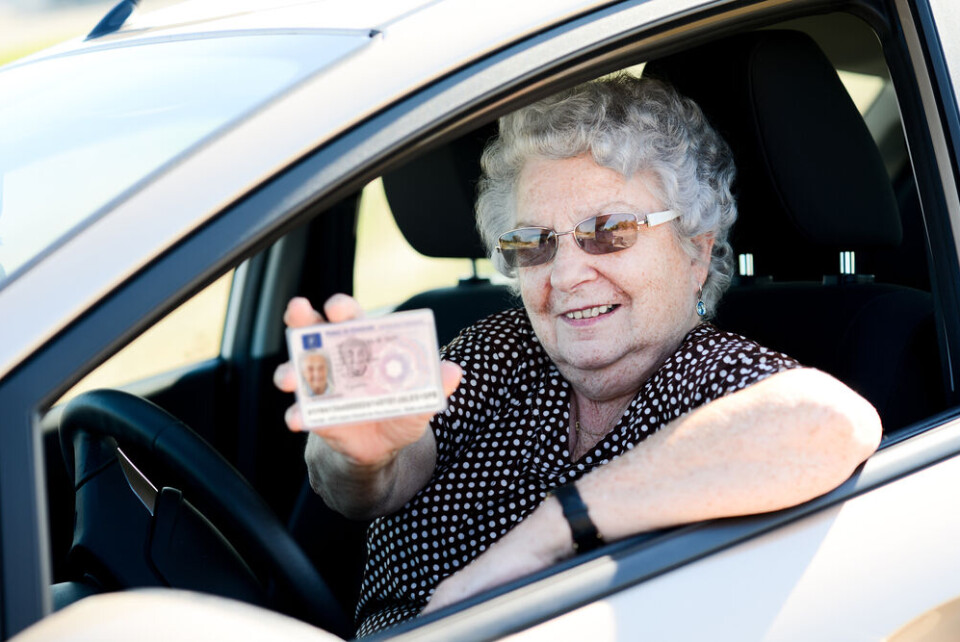-
Britons are the largest foreign community of second-home owners in Nouvelle Aquitaine
See which other departments in the region are popular with British nationals
-
Travellers risk extra costs under new Eurotunnel ticket rule
Some fare options are less flexible and less forgiving of lateness
-
May will be difficult month for train travel in France, warns minister
Two major train unions are threatening to strike and are ‘not willing to negotiate’, he says
Phones, tests, lorries: Changes on way for (some) drivers in France
EU wants to eliminate road deaths by 2050 and seeks to modernise driving tests

A landmark vote on Wednesday (February 27) saw the European parliament reject mandatory medical checks for EU driving licence holders.
Licences for car and motorbike licences will need to be updated every 15 years – and every five for lorries and buses – but can remain as purely administrative procedures.
National governments have been ‘invited’, but are under no obligation to, introduce medical checks as part of these licence renewals.
One potential alternative would be self-assessment forms for drivers during the renewal process.
Some countries, including Italy, Portugal, the Netherlands, and the Republic of Ireland, already have mandatory medical checks for drivers renewing licences.
However, MEPs did vote in favour of a number of changes to European driving licences, that will affect holders in France.
Some of the proposals have already been implemented in the country, whereas others are likely to be introduced over the coming years.
The proposals voted in favour of by the EU parliament will be further scrutinised after the European elections that take place between June 6 and 9 this year and more information is expected then.
All Britons living in France will eventually need to exchange their licences, depending on the original date they received it in the UK, and the expiry date of the licence.
Read more: Post Brexit: When do Britons need to swap to French driving licence?
Digitalised driving licences
France already has a digital licence system, where you can keep a copy of the document on your phone, and leave the physical version elsewhere.
This was rolled out nationally earlier this month after trials in 2023.
Currently, only people with a French National Identity card can use the scheme, but it will soon be rolled out for all Carte de Séjour holders.
Read more: French driving licence: mobile app lets you keep original at home
It is also a possibility in a number of other European countries, but now all nations within the bloc will need to work towards allowing digital licences for drivers.
HGV licence push
In light of transport worker shortages in the EU, it will now be easier for drivers over the age of 18 to obtain the licence categories for buses and lorries.
Drivers will still have to present proof of competence and training in the category from a certified body, however.
Current rules in France prevent those under the age of 21 from obtaining certain heavy vehicle (‘C’ category) licences.
“17-year-olds will also be able to obtain a lorry driving licence if they are accompanied by an experienced driver,” the EU parliament added.
Probationary period for licences
Another change that will impact younger drivers elsewhere is the two-year ‘probationary’ period for those who have recently passed their test.
The exact details of this ‘probationary’ licence are not confirmed, but it will include harsher penalties for drink driving, as well as a lower blood alcohol limit for new drivers.
This ‘probationary period’ already exists in France, and the drink-driving proposals by the EU – only 20mg of alcohol per 100ml of blood for new drivers – are already in place.
Drivers in France not on a probationary licence can have a maximum of 50mg of alcohol per 100ml of blood.
Note that those who exchange a non-French licence for a French one do not obtain a probationary licence, but those who must retake their test in France for whatever reason do.
Read more: UK driving licence exchange: Why is there a 70 on my new French one?
Changes to driving tests?
MEPs also want to see a swathe of new elements added to driving tests across the bloc to modernise these tests for the 21st century.
One point stressed in the adopted rules was “an increased awareness” of pedestrians.
New drivers should "be aware of the risks, in particular for vulnerable road users such as pedestrians, children, cyclists and users of electric scooters,” the parliament said, and tests should be updated to include knowledge of this.
In addition, tests should include practical elements including “the safe use of telephones while driving, blind spots, driver assistance systems and checking that vehicle doors open safely.”
Calls were also made to include “driving in winter conditions” to be added to tests, which would include simulations of driving on snowy and slippery/wet roads.
The exact changes will be known at a later date, as well as whether the ‘pedestrian awareness’ sections will be part of theory or practical tests.
Related articles
Do police officers need reason to stop and control drivers in France?
Start date set for motorbike roadworthiness tests in France
























